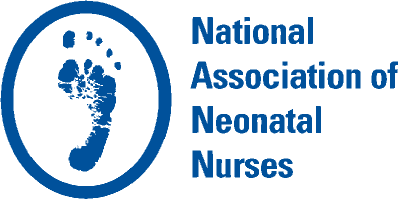Our Feelings are Valid, Too: How Emotional Labor Affects the NICU Nurse
By Victoria Lemme, BSN RN
NANN Footprints: Stories from the NICU April 2020
 To many, I have the best job in the world. I see babies take their first breaths, first baths, first bottles; but I also see the lasts for some. I am a Neonatal Intensive Care Unit nurse and yes, I have the best and worst job all wrapped up into one. I may appear put together on the outside, but on the inside, there are emotions begging to be recognized because my feelings are valid, too.
To many, I have the best job in the world. I see babies take their first breaths, first baths, first bottles; but I also see the lasts for some. I am a Neonatal Intensive Care Unit nurse and yes, I have the best and worst job all wrapped up into one. I may appear put together on the outside, but on the inside, there are emotions begging to be recognized because my feelings are valid, too.
When I chose to become a nurse, I knew that I would have to contend with extenuating circumstances that often led to death. What I did not know but have come to realize is that behind the calm and collected persona of a nurse is someone who has feelings, too. Although the physical labor of working with infants is significantly less than that of working with adults, the emotional labor of building unforgettable relationships with families and babies, regardless of whether I've met them for a moment or had the opportunity to spend months with them, is everlasting.
Emotional labor has been defined as "the labor that requires one to induce or suppress feeling in order to sustain the outward countenance that produces the proper state of mind in others- in this case the sense of being cared for in a convivial and safe place" (Cricco-Lizza, 2014). For those unfamiliar with the NICU environment, I encourage you to look up what the typical bedside of a neonate looks like. From ventilators and IV poles to alarming monitors, the NICU is anything but calming to new parents. This is where we as nurses come into play. We are the calm in the storm, or so we think we must be.
I vividly remember the night I lost my first patient. I walked into the unit at the start of my shift expecting my usual assignment to see that I was assigned to one baby. I walked over to the bedside to see two parents staring in at their little girl while her day nurse stared at her monitor as the baby's oxygen saturations were in the 60s. My immediate thought was, "Why is nobody doing anything?" As I received report, I came to realize that there was not much more humanly possible to do to help this tiny girl. I felt broken for this family knowing that they would not be able to take their baby girl home but despite my feelings, I had to be the calm in the storm for them.
Right before the shift was over, I handed the precious baby girl to her mother as support was withdrawn. I fought back my tears in front of the family because I felt selfish making this moment about my emotions. When the day nurse arrived, we walked the family to a private room to spend their lasts moments with their baby. As the door shut, I began to break down.
There are still days that I believe that I am not entitled to my feelings. I've been asked "Are you sure this is the right job for you?" and for a moment I actually question it. I stumbled upon the article, "The Need to Nurse the Nurse: Emotional Labor in the Neonatal Intensive Care" by Roberta Cricco- Lizza and for once I felt my emotions were validated. It's okay to be sad and angry. It's okay not to bottle those feelings up. The emotional burden of working in the NICU is one that can no longer be ignored.
Here are a handful of quotes from fellow nurses, from the article and in my workplace, that resonated with me:
"We are always on stage in the unit...the nurse had to expend considerable emotional labor to maintain a 'happy face' persona, but they believed that this helped the families feel safe and calm." (Cricco-Lizza, 2014)
"There are days your heartstrings are pulled to the point of breaking. Tears flow for babies and moms and families who don't get a chance to feel the love a child can help grow. Sometimes I feel angry, too, for an innocent baby who wasn't given a fair chance at life." (M. Ouellette, 2020)
"Sometimes leaving work at work can be difficult, but realizing you did everything you could during your shift for the baby and the family is all you can do." (S. Kaminski, 2020)
If there's any one thing a nurse can take away from this, I want it to be that you don't always have to put on your brave face to mask your emotions. Speak out, tell your truth and you will find that you are not alone in how you feel. Before we are healthcare professionals, we are human, and our feelings are valid too.
References:
Cricco-Lizza, R. (2014). The Need to Nurse the Nurse. Qualitative Health Research, 24(5), 615–628. doi: 10.1177/1049732314528810
Kaminski, S (2020). Personal Interview
Ouellette, M (2020). Personal Interview
